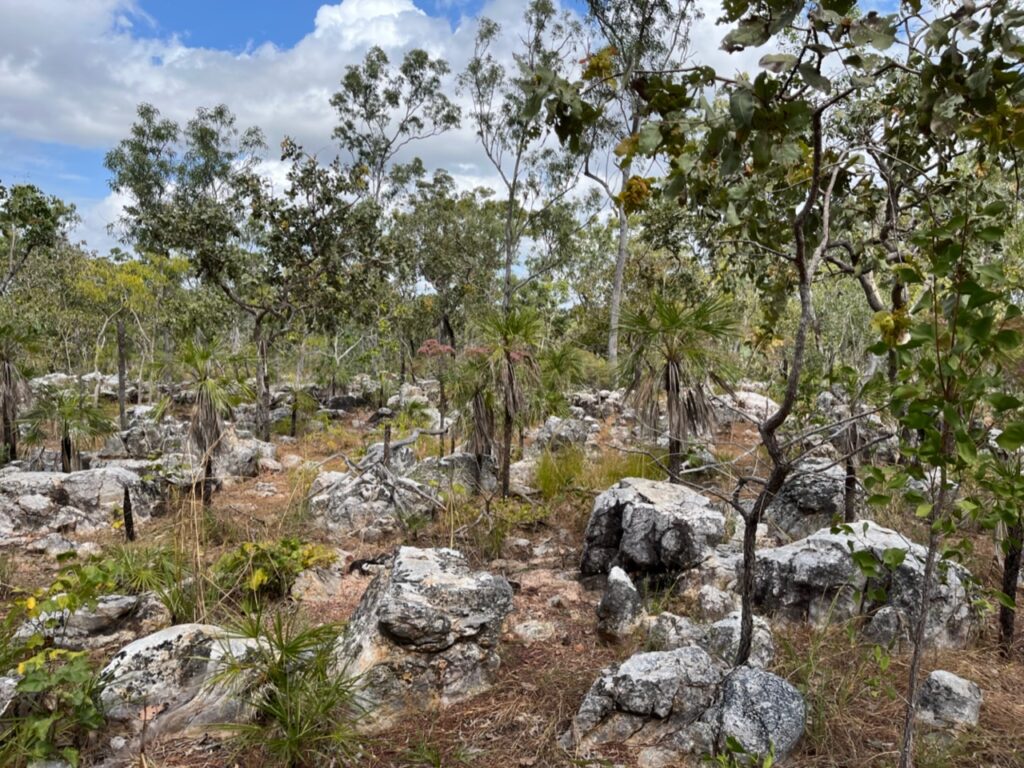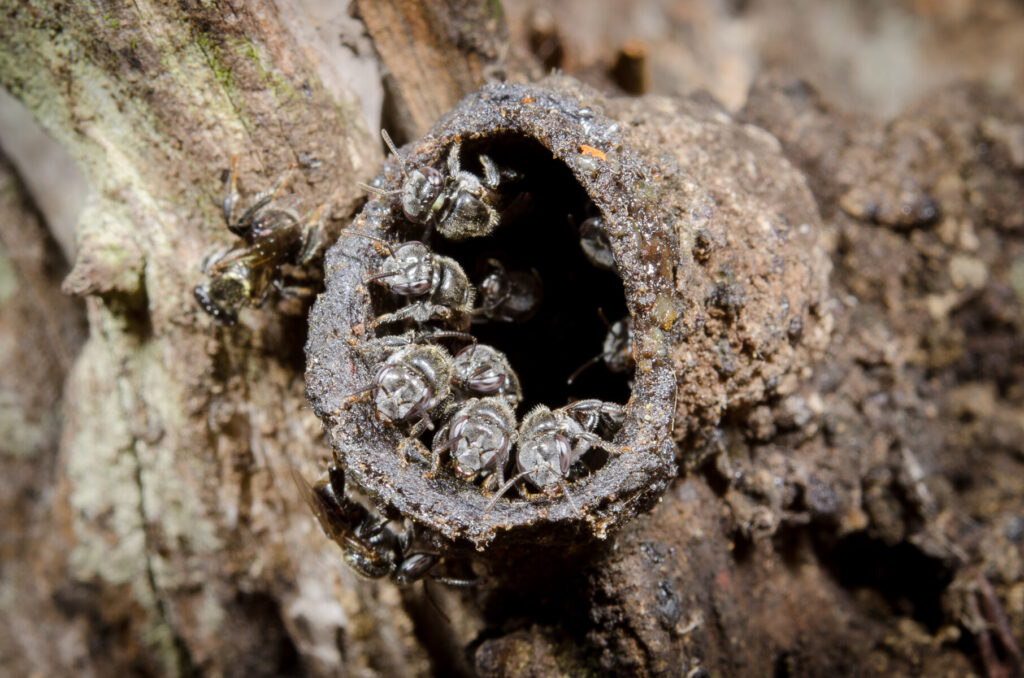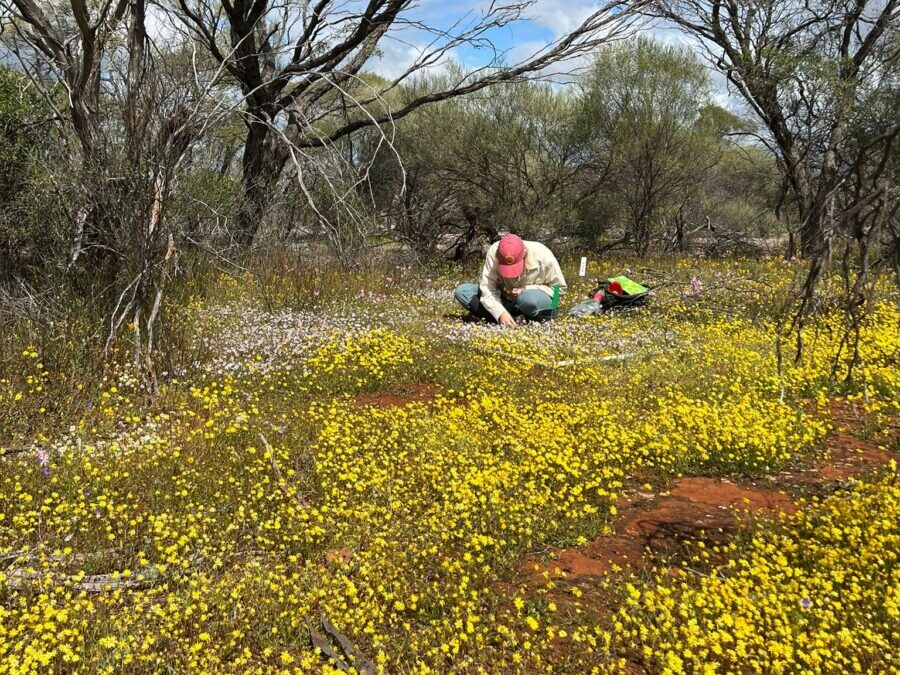Investigating the ways in which native bees are impacted by climate change and developing management strategies for the future
There are more than 2000 native bee species in Australia. Most of these species are solitary species that are unrecognised by the casual observer let alone appreciated for the ecosystem services they provide us. Some of our native bee species, the social stingless bees of tropical Australia have known economic and cultural significance. These species are also likely to be of even more economic importance for crop production if Varoa mite establishes in Australia’s European honey bee populations, leading to similar declines in these commercially critical exotic bee species. The Mayfield lab is involved in a number of developing projects on bee conservation in Victoria and the Northern Territory.
Project 1.
Working out of Yirrkala, NT our team is working with Yolngu communities to develop management plans to help protect native stingless bees in their communities. The stingless bees of Arnhem Land and fundamental to Yolngu culture, forming the basis of their Moity system, their song cycles, and as important sources of food and medicine. In recent years, traditional harvesting in this region has proven to be difficult, with declines in bee abundance and honey and propolis loads. We are working with members of the Barrkira Homeland and ranges from several Indigenous Corporations to figure out what is happening to the bees. Are declines resulting from changes in flowering phenology flowering frequency? Heat stress in the bees themselves? or changes in the competitive dynamics between stingless bees and other native (or exotic) bees in the region? This work have been generously funding by the Faculty of Science and the Indigenous Knowledge Institute of the University of Melbourne.
Project 2.
Closer to home, our team is in the early stages of developing relationships to start surveys of native bees in northern Victoria. This work is slated to start in 2024 and will focus on surveying native bees in endangered vegetation types under different management practices. Like with our work in the Northern Territory, our interest in native bees is strongly linked to understanding how climate and land use changes combine to impact this ecologically, culturally and economically important group of insects. This work will also be done in collaboration with BugNet (https://www.bug-net.org/) a global project to assess the impacts of invertebrate herbivores on plant communities and ecosystems.
Project Collaborators
Margie Mayfield
University of Melbourne
Rachele Wilson
University of Melbourne/ Griffith University
Bug-net
University of Bern
Cecilia Dahlsjo
University of Oxford
Indigenous Knowledge Institute
University of Melbourne
Project students
Clancy Lester (Masters student)
Rachel Wong (Masters student)
Ben Stone (Honours student)


